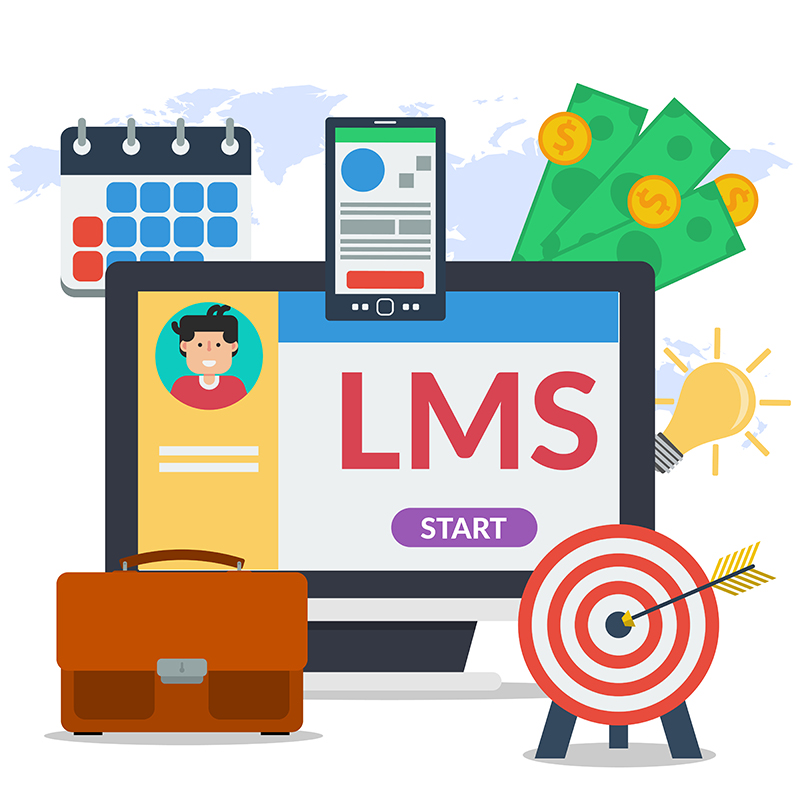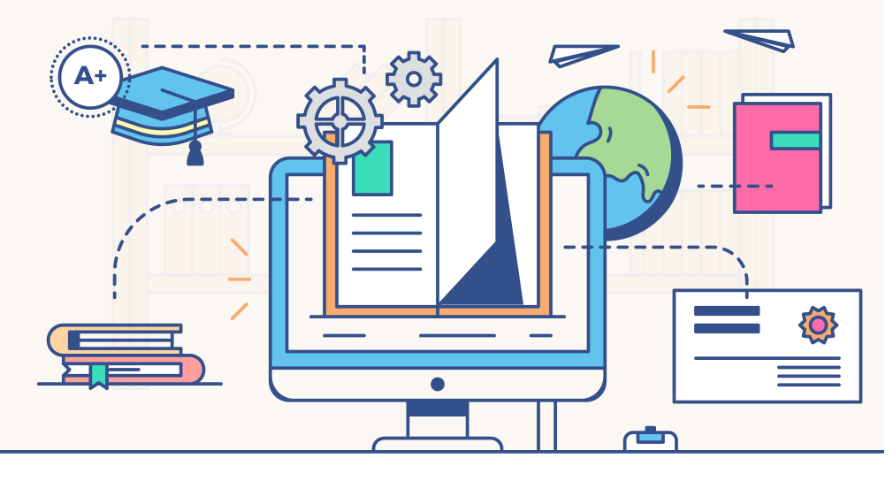Canvas Singapore: Transforming the Future of Learning in Singapore
Canvas Singapore: Transforming the Future of Learning in Singapore
Blog Article
Learning Monitoring Equipments: Simplify and Track Your Discovering Objectives
In today's academic landscape, Knowing Management Systems (LMS) attract attention as crucial tools for improving the efficiency of learning procedures. By giving a central system that helps with interaction and individualizes academic experiences, these systems are progressively adopted in both scholastic and expert settings. Their analytical capabilities enable careful tracking of progress versus discovering goals, cultivating accountability amongst individuals. The concern remains: what details functions can an LMS deal to optimize your discovering journey and ensure you fulfill your objectives? Discovering this more exposes essential insights that can transform your method to education and learning.
What Is a Knowing Administration System?
A Learning Management System (LMS) is normally a software program application made to help with the management, documentation, tracking, and shipment of instructional training courses or training programs. At its core, an LMS offers a central platform where teachers and learners can engage successfully. This system improves the instructional process by allowing teachers to produce and handle material, assess pupil performance, and communicate with learners.
LMS solutions come furnished with different features, such as program enrollment, material monitoring, and coverage tools (lms singapore). They support varied understanding layouts, consisting of e-learning, combined understanding, and typical class direction. Furthermore, LMS platforms can incorporate multimedia components, such as video clips and interactive quizzes, enhancing the learning experience
The execution of an LMS can differ dramatically based upon the requirements of the organization, varying from local business to large universities. This versatility makes LMS services suitable for numerous contexts, including corporate training, specialist advancement, and academic education and learning. As innovation continues to advance, the function of LMS in fostering reliable knowing environments stays increasingly crucial, supplying both instructors and students with the required devices to accomplish their educational goals.
Benefits of Utilizing an LMS
Utilizing a Discovering Management System supplies various benefits that enhance both training and learning experiences. An LMS systematizes educational sources, making it easier for teachers to arrange and deliver material to pupils. This streamlined access to products cultivates an efficient discovering setting where students can engage with coursework at their very own rate.
Additionally, LMS platforms commonly come equipped with analytics and reporting functions, enabling instructors to track student progress and determine locations where people might require additional support. This data-driven technique not just educates guideline but also improves general pupil end results by helping with targeted interventions.
Additionally, the adaptability of an LMS suits various learning styles and preferences, allowing the combination of multimedia sources that satisfy varied pupil demands. This flexibility is specifically valuable in today's increasingly digital landscape.
Additionally, an LMS promotes partnership with conversation online forums and team tasks, motivating peer communication and interaction. Such interaction improves vital reasoning and analytical skills, important elements of a well-rounded education. Overall, the benefits of making use of an Understanding Monitoring System dramatically add to a much more organized, efficient, and effective instructional experience for both trainers and learners.
Secret Functions to Search For
When selecting an Understanding Monitoring System (LMS), a number of key features can dramatically affect the effectiveness of the platform. First and leading, user-friendliness is crucial. An user-friendly interface makes certain that both learners and administrators can browse the system effortlessly, lowering training time and boosting engagement.
Next, durable reporting and analytics capacities are essential. These features permit organizations to track student development, assess training course efficiency, and identify locations for renovation. In-depth insights assist in educated decision-making and improve the total knowing experience.
In addition, scalability is an important consideration. The LMS must have the ability to suit an enhancing variety of customers and web content without compromising performance. This versatility makes sure the system can expand along with the company.
Integration with existing tools and platforms is likewise crucial. An LMS that flawlessly gets in touch with other software, such as HR systems or content authoring tools, improves process effectiveness and information consistency.
Finally, take into consideration mobile compatibility. A mobile-friendly LMS makes it possible for students to accessibility products anytime, anywhere, advertising an extra adaptable understanding setting. lms singapore. By focusing on these crucial attributes, companies can choose an LMS that efficiently satisfies their educational goals
Implementing an LMS in Your Operations
Choosing the right Understanding Management System (LMS) is only the primary step; effective execution within your process is similarly crucial. To make certain a smooth change, start by clearly defining your understanding goals and desired outcomes. Entail crucial stakeholders at an early stage to garner assistance and address prospective issues.
Following, examine existing processes and recognize exactly how the LMS can integrate flawlessly. This includes mapping out operations, figuring out which features lms singapore of the LMS will certainly be used, and appointing functions for content production, management, and customer gain access to. Providing appropriate training for all users is crucial; think about tailored sessions to attend to different skill degrees and obligations.

Lastly, keep open lines of communication throughout the implementation procedure. Regular check-ins with customers will aid determine any obstacles and assist in ongoing assistance, ensuring that the LMS comes to be an important part of your discovering community.
Ideal Practices for Goal Monitoring
To effectively track finding out goals within your LMS, it's necessary to establish clear metrics and standards that align with your academic purposes. Begin by defining details, measurable, attainable, pertinent, and time-bound (SMART) objectives for learners. This clarity will certainly enable both trainers and pupils to monitor development properly.
Utilize the built-in analytics devices of your LMS to collect data on course completion prices, analysis scores, and engagement degrees. Regularly evaluate these metrics to determine fads, locations for improvement, and prospective obstacles. Including developmental assessments throughout the knowing procedure can supply prompt responses, enabling adjustments to be made in real-time.
Furthermore, motivate self-tracking amongst students by giving them with devices such as progression graphes or control panels. This fosters accountability and motivates them to take ownership of their educational journey.
Finally, interact frequently with students regarding their development. Arranged check-ins or comments sessions can assist strengthen goals and encourage dialogue about challenges faced. By implementing these best practices, companies can make certain reliable objective monitoring, eventually enhancing the overall learning experience and end results within the LMS structure.

Verdict
In summary, Learning Management Equipment (LMS) offer as very useful devices for improving educational experiences by centralizing sources and promoting communication between educators and students. Eventually, an LMS is vital for achieving scholastic purposes and promoting a conducive learning setting.
Report this page